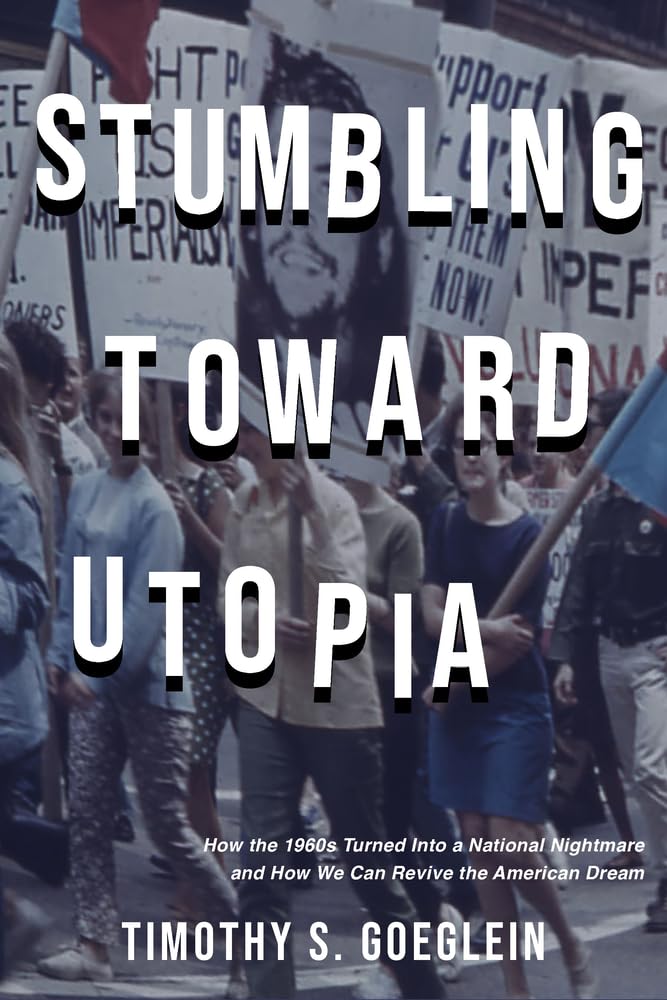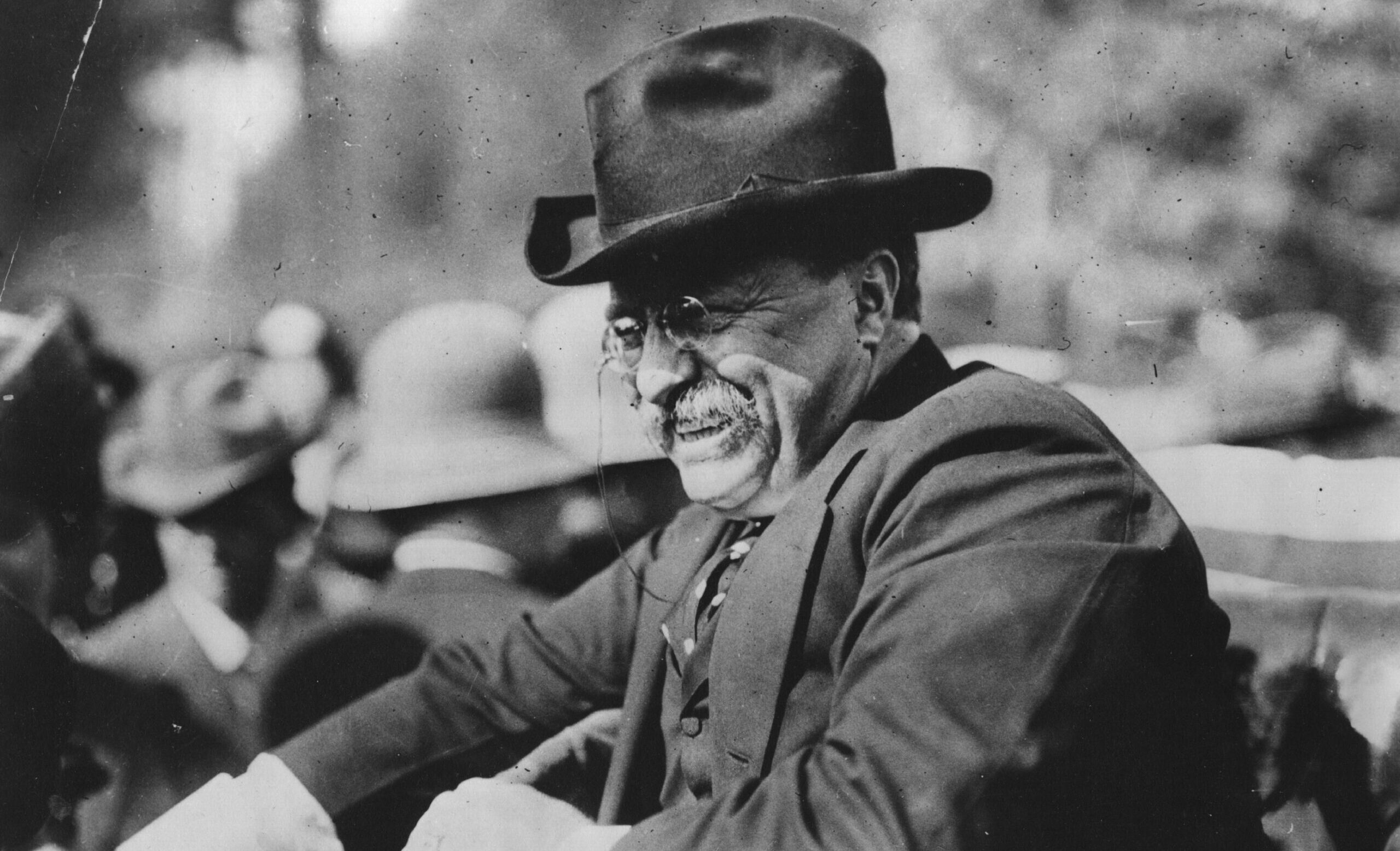Although Whittaker Chambers died in 1961, the way the ensuing decade would rip the country apart would not have surprised the Cold War hero. His autobiography Witness, documenting the hearings and trials that exposed Alger Hiss as a Soviet spy, foreshadowed the pending cultural divide. As much as the Sixties have been interpreted as a generational conflict, Chambers saw in the late 1940s “the jagged fissure” in America “between the plain men and women of the nation, and those who affect to act, think, and speak for them.”
The pitting of those whom Chambers called “the enlightened and the powerful”—who protected and defended Hiss—against average Americans continues in the twenty-first century, even as those under the age of sixty do not remember the decade that ignited the Kulturkampf that became a permanent feature of American life.
But thanks to Tim Goeglein, who served as a Republican staffer in the U.S. Congress and the White House of George W. Bush, younger Americans can grasp the significance of the explosive era when their Baby Boomer elders came of age. In his fittingly titled Stumbling Toward Utopia, the vice president of Focus on the Family assesses the “cultural earthquake” of the 1960s while tracing the “old fault lines” that continue to wreak havoc.
Like other conservatives, Goeglein frames the liberal uprising that unfolded between the assassination of John F. Kennedy in 1963 and the 1974 resignation of Richard Nixon in ominous terms. The cultural revolution was fomented by elites who not only undermined the foundations of family, church, and state but also sowed mischief in the public-education establishment, the social sciences, and the entertainment industry.
Stumbling Toward Utopia amply identifies the antecedents to the 1960s in myriad earlier accessories to the counterculture.
At the heart of this betrayal of the nation’s “fundamental underpinnings”—which parallels Hiss’s treason—was a rejection of moral and sexual standards that sustained Middle America. As Goeglein writes: “The American family, which served as the backbone of society, was dismissed as ‘outmoded’ and ‘patriarchal.’ Abortion . . . went from something seen as a tragedy to something to be celebrated. Sexual relations outside of marriage were trumpeted as the new norm, and virginity became mocked.”
Although just 186 pages, Stumbling Toward Utopia amply identifies the antecedents to the 1960s in myriad earlier accessories to the counterculture. Goeglein explains how liberal progressives a century ago, from the education theorist John Dewey and President Woodrow Wilson to Roger Baldwin of the American Civil Liberties Union and the family-planning eugenicist Margaret Sanger, planted the seeds of the Age of Aquarius.
Goeglein also indicts Alfred Kinsey, whose fraudulent research in sexuality, underwritten by the Rockefeller Foundation, inspired Hugh Hefner to launch Playboy in 1953 and in the 1960s prompted Helen Gurley Brown to turn Cosmopolitan into a sex primer for young women. Contrived studies by William Masters and Virginia Johnson further glamorized sexual behavior outside the protective bonds of marriage, downplaying its toll on the well-being of women and children.
Adding fuel to the fire of the 1960s were the politics of the Port Huron Statement by Tom Hayden and his Students for a Democratic Society and Saul Alinsky’s Rules for Radicals, two “New Left” manifestos that influenced future left-wing politicians such as the young Hillary Clinton and Barack Obama.
Subsequent chapters explore utopian “stumbles,” including the radicalization of public schools, leading to shocking percentages of Americans who can’t read, perform basic math, or identify key events of American history; the abandonment of the Hollywood studio system and its Production Code, a digression that would produce pornographic fare like Midnight Cowboy and Blame It on Rio in place of classics like Casablanca and The Sound of Music; and the deconstruction of family and marriage law that has depressed family formation and birth rates while depriving an alarming number of American children of a married mother and father.
Goeglein says surprisingly little about Roe v. Wade, however. His book laments more the court decisions ten years earlier that banned daily Bible readings and recitation of the Lord’s Prayer in public schools. He reads the 1964 Civil Rights Act as a standout achievement of the time, apparently disagreeing with Christopher Caldwell in his 2020 book The Age of Entitlement, which contends that legislation was far more radical in scope than its champions have claimed. Instead of merely toppling the iniquitous Jim Crow regime, according to Caldwell, the law committed both public and private sectors to a total reordering of American society.
Having been hit hard by the stumbles of the Sixties, those Baby Boomers who did not lose themselves to the counterculture deeply sense the disorder of our age and remember the happier times before 1968. They’re also shocked by polling Goeglein summarizes: only 23 percent of Americans under age thirty say patriotism is very important, only 31 percent say religion is very important, and even a smaller percentage claim having children is very important.
Whittaker Chambers considered the American crisis a crisis of faith. Goeglein concurs: “America will not resolve its current crisis without a restoration of faith and the virtues that come with it.” He calls for binding up the wounds inflicted by the 1960s. Let’s hope today’s silent majority heeds him, instead of listening to the “best and brightest” who presume to act, think, and speak for them.















